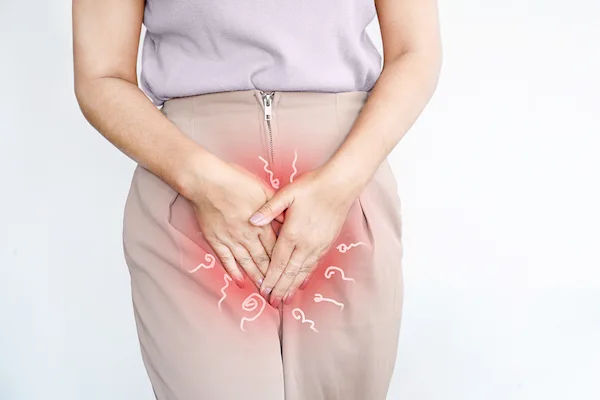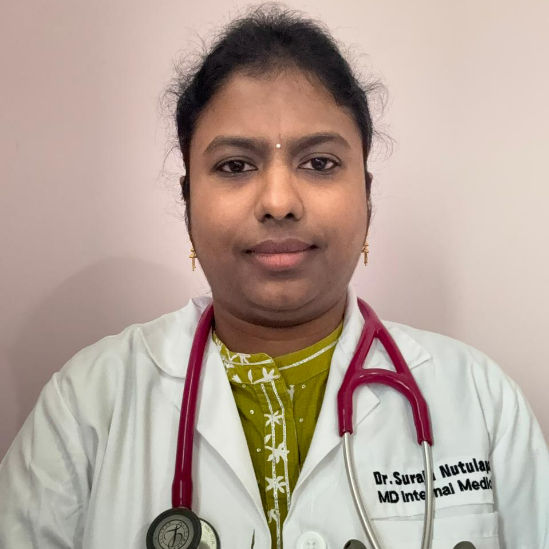STD Symptoms in Women: What to Know
Learn the common symptoms of STDs in women, how to recognize early warning signs, and why regular testing matters. Get tips on prevention, treatment, and when to see a doctor.

Written by Dr. J T Hema Pratima
Reviewed by Dr. D Bhanu Prakash MBBS, AFIH, Advanced certificate in critical care medicine, Fellowship in critical care medicine
Last updated on 28th Jul, 2025

Sexually transmitted diseases (STDs) are infections that spread through sexual contact, including vaginal, anal, or oral sex. While both men and women can get STDs, women often experience different symptoms, and some infections may go unnoticed until complications arise. Recognizing the signs early can help in getting timely treatment and preventing long-term health problems.
This article will help you understand common STD symptoms in women, their causes, and how to manage them.
Common STDs in Women
Some of the most common STDs affecting women include:
1. Chlamydia
2. Gonorrhea
3. Human Papillomavirus (HPV)
4. Genital Herpes
5. Syphilis
6. Trichomoniasis
7. HIV/AIDS
Each of these infections has different symptoms, but some may not show any signs at all, making regular screenings important.
STD Symptoms in Women
Many women with STDs may not notice symptoms immediately, but when they do appear, they can include:
1. Unusual Vaginal Discharge
Changes in color (yellow, green, gray)
Foul or strong odor
Thick or frothy texture
2. Pain or Burning During Urination
A common symptom of chlamydia, gonorrhea, or trichomoniasis
3. Itching or Irritation in the Genital Area
Could indicate herpes, trichomoniasis, or a yeast infection (not always an STD)
4. Pain During Sex
May occur due to inflammation or infection in the reproductive tract
5. Lower Abdominal Pain
Could be a sign of pelvic inflammatory disease (PID), a complication of untreated STDs like chlamydia or gonorrhea
Consult a Top Physician For More Health Benefits
6. Sores, Bumps, or Blisters
Painful sores (herpes)
Warts (HPV)
Painless ulcers (syphilis)
7. Bleeding Between Periods or After Sex
May indicate an infection affecting the cervix
8. Flu-Like Symptoms (Fever, Fatigue, Swollen Glands)
Possible signs of HIV or later stages of syphilis
Note: Some STDs, like HPV and HIV, may not show symptoms for years, which is why regular testing is crucial.
Why Early Detection Matters
If left untreated, STDs can lead to serious health problems, including:
Pelvic Inflammatory Disease (PID) – Can cause infertility or ectopic pregnancy.
Increased Risk of HIV – Open sores or inflammation make it easier to contract HIV.
Cervical Cancer – Linked to high-risk HPV strains.
Pregnancy Complications – STDs can lead to miscarriage, preterm birth, or infections in newborns.
How to Reduce Your Risk of STDs
You can reduce the risk of STDs through:
1. Practice Safe Sex
Use condoms correctly every time you have sex.
Limit the number of sexual partners.
2. Get Vaccinated
HPV vaccines (like Gardasil) protect against cancer-causing strains.
Hepatitis B vaccine is also recommended.
3. Get Tested Regularly
If you’re sexually active, annual STD screenings are important.
Get tested before starting a new relationship.
4. Communicate with Your Partner
Discuss sexual health openly with your partner.
Ensure both of you get tested if needed.
5. Avoid Douching
It can disrupt healthy vaginal bacteria and increase infection risk.
When to See a Doctor
You should consult a healthcare provider if you:
Notice any unusual symptoms (discharge, sores, pain).
Have had unprotected sex with a new or multiple partners.
Are pregnant or planning to conceive.
Many STDs can be treated with antibiotics (like chlamydia, gonorrhea, syphilis), while others (like herpes, HIV) can be managed with medications.
Getting Tested & Treated
If you suspect an STD, don’t wait—early treatment prevents complications. Apollo 24|7 offers:
Discreet and confidential STD testing
Expert consultations with gynecologists
Home sample collection for convenience
You can book a test or consultation easily through the Apollo 24|7 app or website.
Conclusion
STDs are common, but many can be prevented and treated with the right care. Pay attention to your body, practice safe sex, and get tested regularly—especially if you have new or multiple partners. If you notice any symptoms, don’t ignore them; early medical help can protect your long-term health.
Consult a Top Physician For More Health Benefits
Consult a Top Physician For More Health Benefits

Dr. Syed Ismail Ali
General Practitioner
7 Years • MBBS
Hyderabad
Apollo 24|7 Clinic, Hyderabad

Dr. M L Ezhilarasan
General Practitioner
6 Years • MBBS
Visakhapatnam
Apollo 24|7 Clinic - Andhra Pradesh, Visakhapatnam

Dr. D Bhanu Prakash
General Practitioner
10 Years • MBBS, AFIH, Advanced certificate in critical care medicine, Fellowship in critical care medicine
Hyderabad
Apollo 24|7 Clinic, Hyderabad

Dr. Suraja Nutulapati
General Physician/ Internal Medicine Specialist
10 Years • MBBS, MD (Internal Medicine)
Hyderabad
Apollo 24|7 Clinic, Hyderabad
(850+ Patients)

Dr. Mohammed Kamran
General Practitioner
5 Years • MBBS, FIDM
Nashik
Apollo 24|7 Clinic - Maharashtra, Nashik